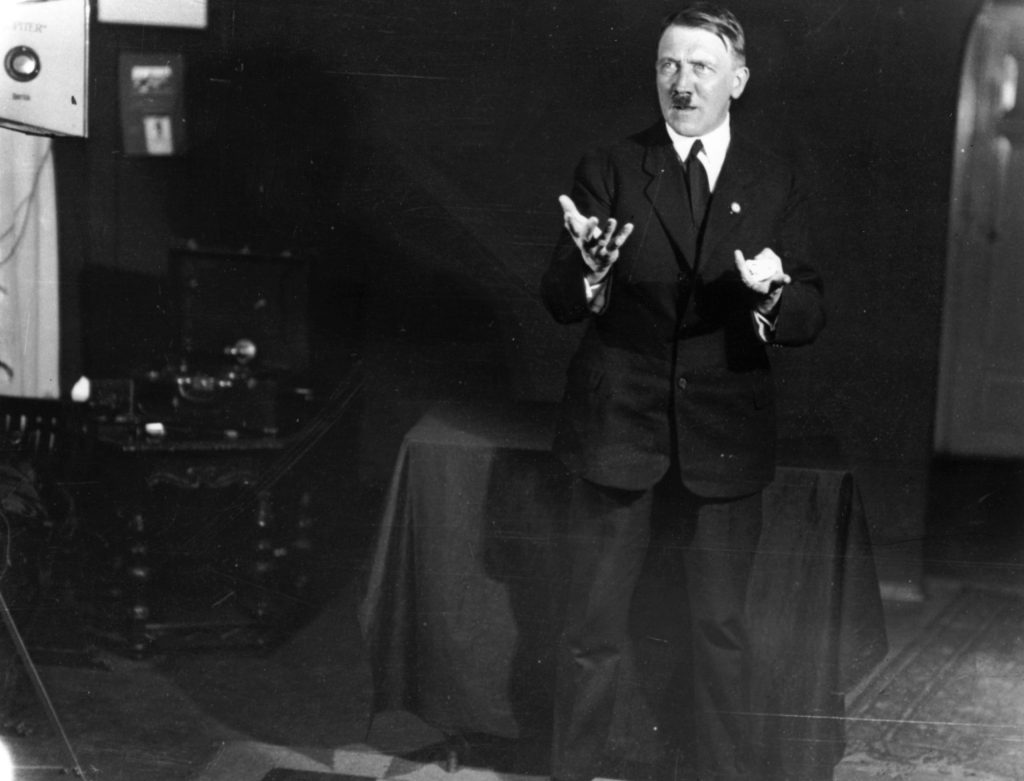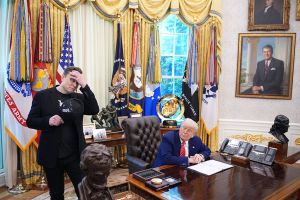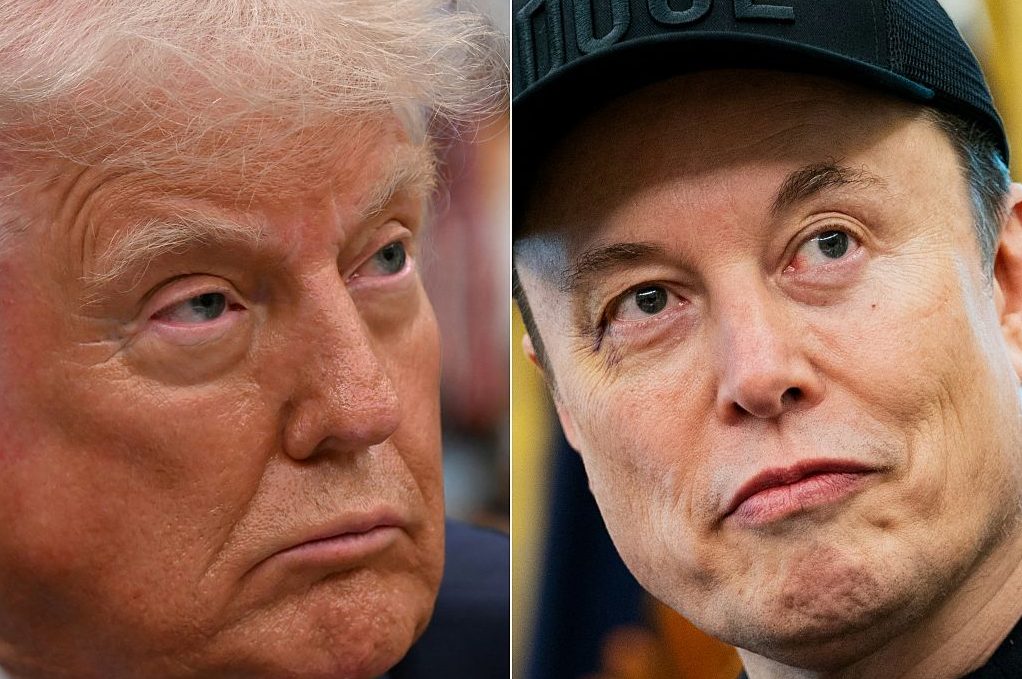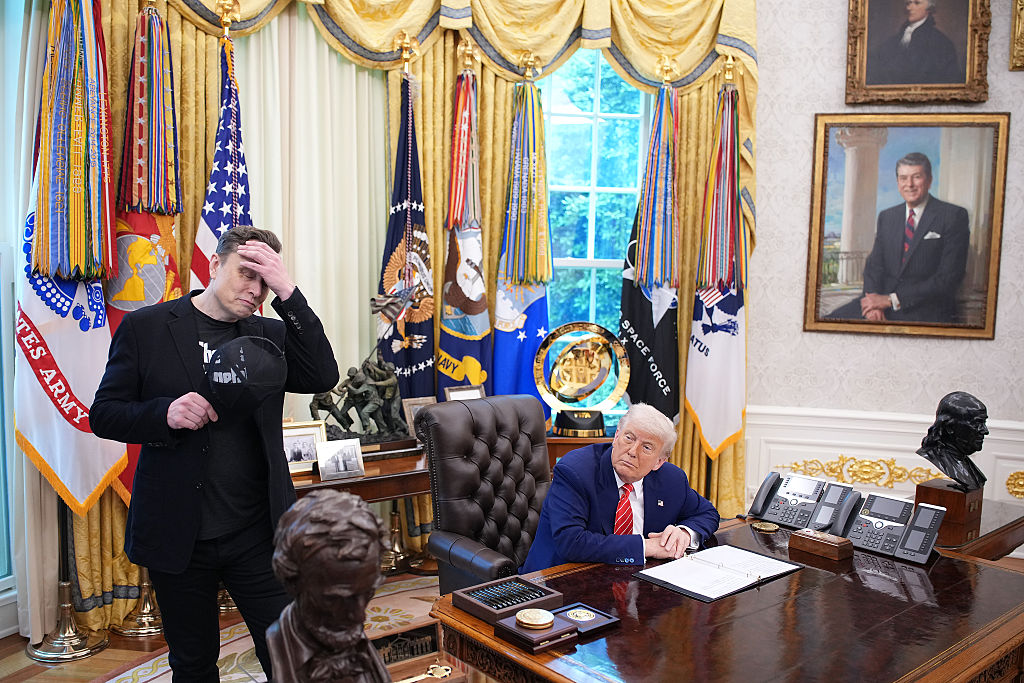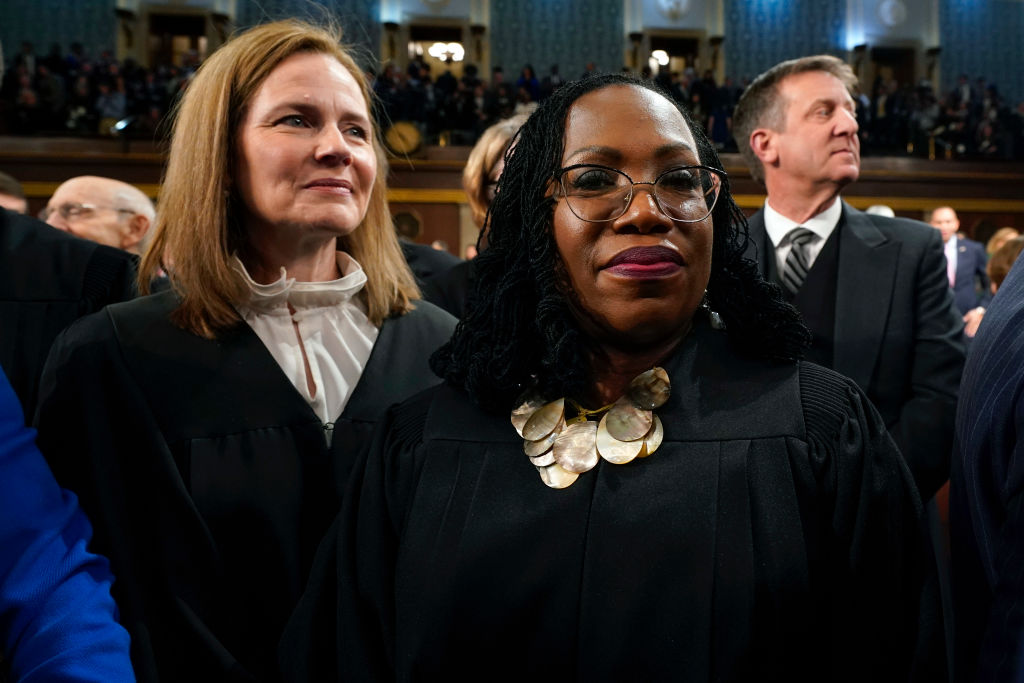Donald Trump has been dogged by Nazi associations, whether it’s his reluctance to condemn David Duke during the campaign — after temporising, he finally said ‘I disavow,’ though what, exactly, he was disavowing he left unclear — or the Charlottesville rally, which he said in August 2017 had ‘some very fine people on both sides.’ Now comes Germany’s popular tabloid Bild newspaper to sound out Hitler’s surviving great-nephews — Brian, Louis, and Alexander Stuart-Houston — about their views of Trump. They represent the last paternal bloodline of the family and live on Long Island.
Their father William Patrick was born in 1911 in Liverpool, the descendant of Alois Hitler, a half-brother of the Führer. He visited his father in Germany in 1929, dropped by a Nuremberg rally, and then began holding forth to British newspapers about his famous uncle. Who was not amused. William was called on the carpet by Hitler: ‘No one must drag my private affairs into the newspapers. I have never said “nephew” to tell them all the miserable little details they want to know.’ Hitler had a lot to conceal.
As a superb new book by Cory Taylor called How Hitler Was Made: Germany and the Rise of the Perfect Nazi reminds us, Hitler himself invented very little, embracing anti-Semitism, not in Vienna as he claimed in Mein Kampf, but only after World War I in Bavaria. He was a homunculus, groomed to serve as the instrument of a shadowy network of backers in Munich, including members of the Reichswehr, industrialists and seedy nationalist intellectuals, who concocted the Dolchstosslegende, or stab-in-the-back legend, that scheming Jewish and communist ‘November criminals’ had betrayed the fatherland. But they failed to recognise the extent of the Viennese parvenu’s megalomania as he came to believe in his own myth while writing his memoirs in Landsberg prison in 1924. Key to cultivating it was maintaining control over his public image, which is why Hitler was so cross with what he called his ‘loathsome nephew.’
Despite Hitler’s remonstrances, William remained unrepentant. After World War II began in September 1939, he ended up in America, where he eventually enlisted in the Navy and fought against the Nazis. He died in 1987.
The presence of the brothers on Long Island was first aired by the New York Times in 2006. The Times reported that neighbours remarked upon the father’s family resemblance to you-know-who. Teresa Ryther, who played with the boys as a child, remarked, ‘Once, my father told my mom, “I just saw Patty mowing the lawn, and he turned around real quick and, my God, he looked exactly like Hitler.” And I remember thinking, “Oh, Hitler — he was that bad guy.” ’ The boys apparently liked to play with battleships: ‘Inside the house, it was very German, very European, and the parents spoke German,’ Ms. Ryther said. ‘I remember the boys had a toy battleship they called the Bismarck that they would float in their blow-up pool in the backyard. Once, they lit it on fire somehow, and I have this vivid memory of them all yelling, “The Bismarck is sinking.” ’
Now Alexander has broken the brood’s decades-long silence. To Bild’s intrepid reporter Timo Lokoschat, Alexander, a longtime Republican, made his views of Trump plain. ‘The last person I would say I admire is Donald Trump. He is definitely not one of my favourites.’ He added, ‘It’s the way he does it that annoys me. And I just don’t like liars.’ Who does he like? Angela Merkel, not exactly Trump’s favourite counterpart.



